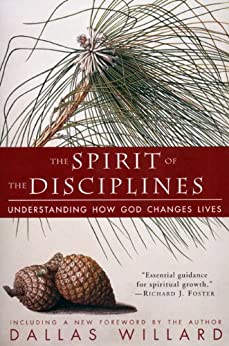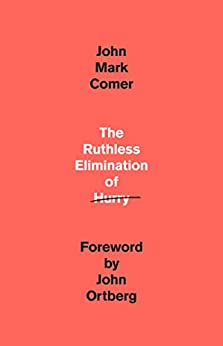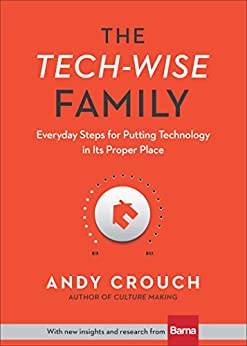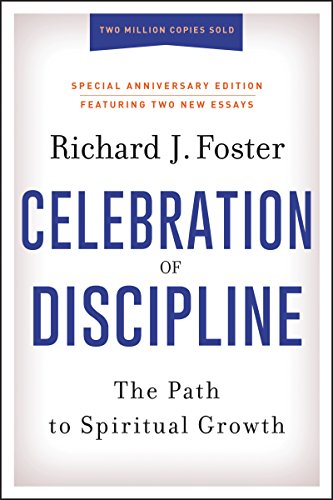January. The time of year culture tells us to set our intentions. We sign up for a gym membership—always the annual contract, so we’ll stay motivated. We promise ourselves we’ll drink less coffee, eat more kale, watch fewer TV shows, listen to more podcasts. By mid-month, we have a checklist of the 19 different ways we’re going to fix our bodies, schedules, relationships, or finances.
And—at least if you’re in the 80%—we tend to have forgotten the checklist by February. (If this sounds like you, you’re among friends. We’ve all been there!)
Our intentions are good! We want to be kinder, gentler, or more generous. We want to put our “house” in order. Heal our bodies, order our finances, or restore our families.
But the strategies the world offers always disappoint.
Despite our meditation apps, gym memberships, podcasts, and to-do lists, we still snap at our kids or our spouses. We still struggle to give generously to the poor. We wrestle with anxiety, lust, or pride. We vow to read through the Bible in a year… and then we hit Leviticus.
Our house looks great, because we’ve decorated the walls. Fixed the leak in the upstairs bathroom. Painted the front door.
But the cracks are in the foundation, not the wallpaper.
Thankfully, Scripture has a lot to say about how we were created to order our lives.
Last year we made our way through The Sermon on the Mount (Matthew 5-7) and concluded by unpacking Jesus’ warning found in Matthew 7:23-27. Speaking to a crowd of eager listeners, Jesus says:
“Therefore everyone who hears these words of mine and puts them into practice is like a wise man who built his house on the rock. The rain came down, the streams rose, and the winds blew and beat against that house; yet it did not fall, because it had its foundation on the rock. But everyone who hears these words of mine and does not put them into practice is like a foolish man who built his house on sand. The rain came down, the streams rose, and the winds blew and beat against that house, and it fell with a great crash.”
(If you have a moment, read the passage again.)
What’s striking is that the comparison Jesus is making here isn’t between a devout follower of Jesus and an unbeliever. It’s not between a righteous and an unrighteous person. It’s between a wise and a foolish disciple. Both eagerly desire to follow Christ, but only one has grasped this critical truth: listening to the word of God is not enough.
Let’s unpack this a bit.
Jesus is saying — in no uncertain terms — that you can memorize Scripture, faithfully attend church on Sunday mornings, recite the Lord’s Prayer, and still have a house built on sand.
Because the depth of our apprenticeship to Jesus isn’t predicated on your ability to retain information aboutJesus. It’s built on our obedience to the teachings of Jesus.
Every January, Mill City chooses a word to orient the focus of our apprenticeship to Jesus over the course of the year. And in 2023, we’re happy to announce that it’s not resolutions, willpower, motivation, or checklist.
It’s practice.
We understand everyone has a different relationship with this word. Many were raised in homes or churches where the rules were clear and rigid: and it was even clearer that you never quite measured up. You’d try your hardest, mess up, and feel intense shame.
Eventually, you may have come to believe that your value to God — and others — is dependent upon your behavior or obedience. Or, maybe you grew so tired of feeling ashamed, you became resistant to rules of any kind. (Even those for your own benefit.)
If this has been your experience, we grieve with you. Practices are abused when they are understood as the end. Practices are not the end. They are a means to an end: experiencing the presence and power of God to be formed into the likeness of Jesus, for the sake of others.
Practice is not a sign of weakness or something being wrong. We practice because our humanity requires it.
We are all actively being formed by something. Social media. Consumerism. Politics. Individualism. The news. Our families of origin. Two-day shipping.
The question isn’t if we’re being formed. It’s if we’re being formed by our culture or the kingdom of God.
We don’t become the flourishing humans God wants us to be on accident.
We don’t drift into apprenticeship to Jesus.
We don’t develop our redemptive potential passively.
Through practices, we actively shape our lives to reflect the way of Jesus.
Just like a cathedral needs scaffolding to be restored, practices are the scaffolding that facilitates the restorative work of God in our lives. They support us in our journey toward Christlikeness. And although they are (at times) costly or uncomfortable, their presence provides the structure our souls need to flourish.
Becoming a wise disciple with a firm foundation does require energy and discipline, but to keep the heart, let’s overlay that with the wise words of Dallas Willard, “Grace is not opposed to effort. It is opposed to earning.”
At Mill City Church, here’s how we define (and don’t define) spiritual practices.
#1: Practices are not disciplines to master. They are habits for the Holy Spirit to inhabit.
#2: Practices don’t just shape what we’re doing. They do form who we’re becoming.
#3: Practices don’t just affect our habits. They do transform our hearts.
So, what are the practices that richly engage the process of spiritual formation?
There isn’t a chapter and verse that lists the official spiritual practices. Instead, We find the model for our spiritual practices in Jesus himself! We look at the lifestyle of Jesus and do what he did, because he invites us to follow him. This includes things like p[ayer, fasting, living in community, feeding the hungry, Sabbath, and taking naps.
Throughout this year we will do a deep dive on some practices. After we complete a message series on a practice, we will post a blog with additional resources to go deeper and gain traction to integrate the teachings of Jesus into every corner of our lives.
We look forward to journeying in the way of Jesus together. If you’d like to grow in your understanding of and engagement with spiritual practices, here are some helpful resources:
Resources
Watch
Week One | Practice: A Lifestyle
Week Two | Practice: Which Vision?
Week Three | Practice: Enemies of Your Formation
Weekly Practice Reminder
To receive a friendly reminder of our weekly practice given in Sunday’s message, simply text “practice” to 970-299-9997.
Books
Podcast
Pastor Aaron sat down with Dr. Hud McWilliams for a conversation about motivations, how personalities fit, and the necessary mindset to practice as a follower of Jesus. Check out their conversation below.






